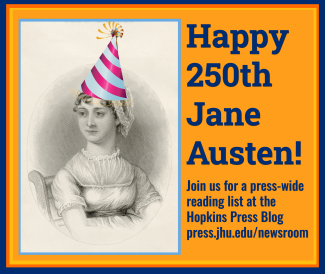Newsroom
Filter
Diabetes Head to Toe: Q&A with the Authors
Why did you decide to write Diabetes Head to Toe? Diabetes is not a one-size-fits-all disease. There are different types of diabetes and a wide range of complications—head to toe—that may develop. Not everyone benefits from the same treatments. Health care...

Cork Wars: Films Introduce a Story of Nature and Business in War
As a writer, it’s rare to feel that a story is destined for you. I felt that way with my first book, Ginseng, the Divine Root, about forests and a secretive subculture around a medicinal plant from American forests that for over two centuries has been exported...

Before and After Loss: A Neurologist’s Perspective on Loss, Grief and the Brain
Loss is traumatic. It wasn’t until I experienced my husband’s death that I learned how disorienting, harrowing and perilous it is to lose people close to us. To lose something that is simply basic to who we are and how we make sense of our lives. As a...

A Legacy of Usable Scholarship
Since 1938, the College English Association has served academics who seek to keep teaching college students as the focus of the profession. Its official publication, The CEA Critic, recently published a double issue commemorating its 80th anniversary with...

A New Angle on Asian Social Mobility
Scholars have studied the topic of social mobility for Asian Americans for years. But a collection of essays in the most recent issue of the Journal of Asian American Studies took a special look at the topic, said journal editor Rick Bonus. He joined us for a...
Adapting to the Importance of the Student Misconduct Investigation
For colleges and universities, investigating discrimination, harassment, academic dishonesty, and other forms of wrongdoing that undermine the institution’s mission and academic programs has become nothing less than a critical preliminary step in support of...

Take One Step Forward – Building Local and Regional Food Systems
Wendell Berry has inspired millions of farmers and farm advocates with his assertion that “eating is an agricultural act.” Food advocates and activists today are taking that further and showing that eating is also a political act. We can reclaim personal...

Freedom's Laboratory: The Cold War Struggle for the Soul of Science
I never intended to write a history of psychological warfare. The project that ultimately became Freedom’s Laboratory started out as a fairly standard investigation into the life and work of Johns Hopkins geneticist H. Bentley Glass. Glass originally attracted...

Ecology and Conservation of the Diamond-backed Terrapin
The Diamond-backed Terrapin has a long and illustrious history, first as a culinary plight to satiate the masses and then becoming an epicurean fad for the well-heeled. The fad faded in the early 20th century because populations declined and the demand for...

Reading Disability in a Pair of Eighteenth Century Shoes: Mary Wise Farley, 1764
Everyday life for many in early America involved endless rounds of backbreaking labor, grueling travel into dense forests, across frozen rivers, or through putrid swamps, and the ever-present risk of illness, accident, and injury. How did early Americans cope...

